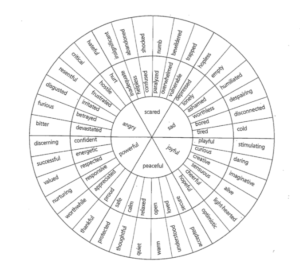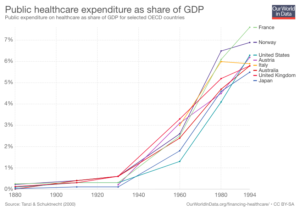At the beginning of this trip, I thought I might take my reflections from the journey, and try to retrofit them into the normal 4-part structure of VIC. It’s now clear that that would not do the trip, myself, or you readers justice. So we’ll approach things like this instead…
Looking back 📖
It’s said that Australia was founded as a penal colony. So when the British ran out of space in their jails for prisoners, they shipped them off to Australia. And while all signs point to that being mostly true, it seems to skew the motivation of the British a bit.
To put things in a temporal context, Australia was colonized immediately following the American revolution. So it seems likely that the British were looking for other strategic prospects. And to that end, workers were needed to build roads, bridges, and other infrastructure to allow industry to come in. And quite conveniently, the prisons back home happened to reach capacity at the same time. Lol
Our first stop on our trip was Sydney. It feels surprisingly like an American city. Tons of white english speakers walking around. Some Asian and Indian people. And a few (very few in this case) blacks sprinkled in.
What surprised me is that the feeling of colonization remains present. Perhaps America isn’t much different, but I’m just used to it. In any case, you have the faces of English queens on the fiat currency. Australia participates in the Commonwealth Games, which seems to be the Olympics for the former British Commonwealth. I guess you might say that the Commonwealth dates back to the mid 20th century with decolonization and increasing self-governance, but there doesn’t seem to be anything comparable to an American Revolution (I need to do some more reading here). Please jump in if you happen to be Australian or are knowledgeable on the subject.
Feeling small 👶🏿
The vastness of the ocean has a way of making a human being feel very small. When you’re on a boat and only see water in all directions, it’s rather humbling. The relentless crashing of the waves was a thing long before humanity. And will continue long afterward.
Mountain ranges have a similar effect. These are the Blue Mountains about an hour west of Sydney.

The beauty of rock formations astounds me. Here’s Bondi Beach in Sydney.

As you can see, the rock is very porous and water fills the small holes. In other places, the rock has smooth flowing white portions juxtaposed with jagged grey areas.

Mosquitos as meditation 💡
The Daintree Rainforest is exquisite.

It also has an exquisite number of mosquitos. I must have gotten 50 or 60 bites in a few hours, despite blankets of repellent. But they offered a great opportunity to practice 2 aspects of mediation.
First, mediation talks about staying present and in the moment. It turns out 50-60 mosquito bites is a great catalyst for this. You’re forced to stay with the pain and discomfort of countless insects drinking your blood in unison. It’s more painful than I would have assumed.
But that said, it’s not so painful that it should be all consuming. There was a period of time where I stopped listening to the guide and was completely flustered by my own scratching and swatting. But when I stopped swatting and focused on what the guide was saying, it turned out that I had a choice as to how much the bites could control my mindset. It turned out that the things I learned about the rainforest and the Gugu-Yalanji aboriginal people was far more interesting and compelling than thinking about the mosquitos.
The Outback 🌵
After Sydney, we traveled to Ayer’s Rock, which is located in the southern part of the Northern Territory. The area is hot, arid, and expansive.

During our time there, we saw the “Field of Light” installation. It’s made of 50,000 lights and over 230 miles of fiber optic cables.

It’s a pretty breathtaking display, and the star-filled sky makes it all the better.
That said, I can’t help but feel like the exhibit is a bit intrusive. This land is purportedly sacred to the indigenous peoples and it feels a bit strange to have a multimillion dollar art installation slapped down in the middle of it. But I’m not sure. Biologically speaking, we are animals like any other animal on the planet, and so it could be said that we come from nature or the natural world. And our inventions, art installations included, come from us. So by that transitive property, one might say that our inventions are also of nature.
“Support our indigenous trainees on the road to success!”
That was a sign in a cafe staffed by indigenous peoples training in hospitality not far from Ayer’s Rock. This one really didn’t sit well with me.
First off, it’s clear who wrote that. And they definitely WERE NOT indigenous. Secondly, the tone is incredibly derogatory. The road to success? You mean working at this cafe for a menial wage serving primarily white tourists? Third, the air of superiority is incredible. As if the indigenous people are being done some massive favor. Finally, while the cafe and restaurant wait staff were often indigenous, who do you think owned the land and the resort? Who was calling the shots? Such a farce!
But then again, who’s to say what someone else’s definition of success looks like. Perhaps success equals maintaining some connection with the land of your ancestors and an opportunity to feed your family.
Kayaking 🚣
You really don’t have much control while kayaking on the ocean. You can paddle or not paddle. Perhaps increase the length or velocity of your strokes. Perhaps just paddle to one side to turn the vessel. But that’s about it. The rest is up to the ocean. You have competing current, apex predators like crocodiles and great white sharks, smaller ones like the Irukandji jellyfish that pose an equal threat, tropical storm systems can show up with a moments notice.
Everyday life is much the same. You can choose to work hard and surround yourself with good people. You can eat well and spend your time wisely. But when you really think about it, luck and chance play an outsized role in how things ultimately play out.
Self-importance 👑
On that same thread, many of us feel very substantial and important (I surely do). But in reality, none of us matter that much.
It’s good to be reminded of that fact. And this trip was one such reminder. I sent a grand total of zero work emails. And at the start of the trip I had this strange idea that I was so critical to everything I do at the office. But in reality, everything kept right on humming in my absence. Perhaps a thing or two got delayed. Maybe a meeting went differently than I would have conducted it. But nothing burned down and no one was killed. Everything is just fine.
Bath time 🛀
Showers are great, but taking a bath is appreciated. Especially for couples. You have two people completely exposed and vulnerable to one another in relatively tight quarters. As a result, you have very little room for the psychological barriers we often erect between each other, even between lovers. So we spent 60 minutes with a bottle of wine, bath salts, and hearts on sleeves. We discussed managing up and down at work, male egos, dealing with psychological trauma head-on, our favorite authors, time management, long-term goals, and many other things. It was, perhaps, the most prized 60 minutes of the entire trip.
(We’ve also decided on a bathtub model for our future home 😉)

Silence 🤭
In many moments, we’re inclined to offer our own thoughts, perspectives, and opinions. But I often found myself remarkably silent while traveling in Australia. The immensity of the ocean. The quiet of the desert. The wonder in observing the Great Barrier Reef. The diversity and adaptability in the rainforest. All inspired profound silence. Perhaps because words just felt inadequate. It’s interesting how our many preoccupations are normally so good at holding our attention, but nature has a way of breaking that.




